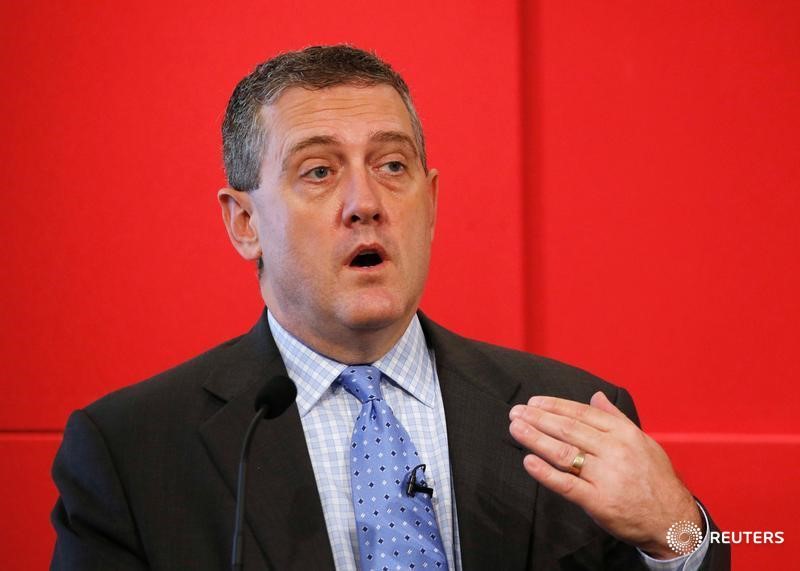By Dhirendra Tripathi
The Federal Reserve should immediately start to cut back its bond buying, The Wall Street Journal reported Federal Reserve Bank of St. Louis President James Bullard as saying in an interview published on Tuesday.
“I think with the economy growing at 7% and the pandemic coming under better and better control, I think the time is right to pull back emergency measures,” Bullard told the WSJ.
Bullard’s comments are striking on two counts -- firstly, they come from someone who previously had a reputation as one of the more dovish members on the Federal Open Market Committee; secondly, they stand in stark contrast to warnings from other FOMC members about the dangers of withdrawing stimulus too soon.
New York Fed President John Williams, repeating comments he has made previously, said on Monday the U.S. economy has not yet achieved the "substantial further progress" threshold officials set for reducing the central bank's asset purchases, while San Francisco Fed President Mary Daly warned on Friday that a 'premature' withdrawal of stimulus would be a big risk, given the continued spread of new strains of the Covid-19 virus.
While the U.S. has vaccinated more than half its population with at least one dose, the pace has slowed sharply since May. Vaccine hesitancy is now widely seen as a big obstacle to reaching herd immunity. Experts are now debating on the need for a booster dose of the vaccines.
In his interview, Bullard voiced especial concern about the state of the housing market, where low mortgages rates and other structural factors are causing steep rises in prices. The S&P/Case-Shiller House Price Index, a leading indicator of home prices in the U.S., indicated that they rose 14.9% year-on-year in April, the most since 2005, during the subprime mortgage boom.
“I am a little bit concerned that we’re feeding into an incipient housing bubble,” he said. “We did get into a lot of trouble with a housing bubble in the mid-2000s and it—and it caused a lot of damage to the economy, so I don’t think we need to be feeding that here given the situation.”
Of the Fed’s $120 billion a month purchases, $80 billion go to the U.S. Treasury market, while the rest go in buying mortgage bonds.
“What we found out from that era was that housing prices can fall nationally and it does have big consequences for the macroeconomy,” Mr. Bullard added, noting that when it comes to the housing market, “we don’t need to, you know, push that any harder than it’s already being pushed by markets.”
Bullard's comments came only hours before the publication of U.S. inflation figures for June. According to estimates, the consumer price index is expected to have risen at an annual rate of 4.9%, a trifle lower than May’s 5%.
